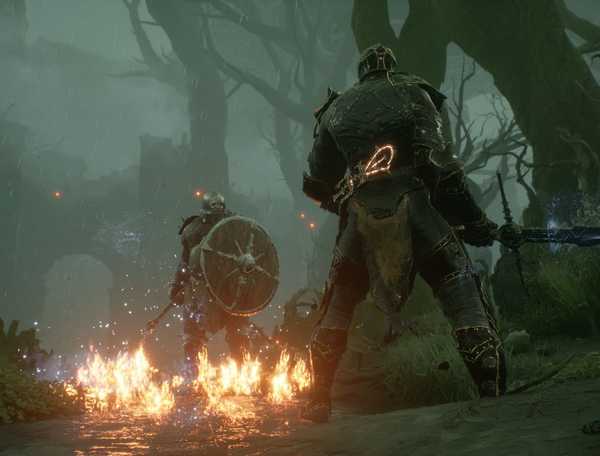
For fans of Dark Souls — or any of FromSoftware's Soulsborne series —these indie games are virtually the same experience, just in a smaller package.
Dark Souls has become a cultural phenomenon, spawning countless other Soulslikes that have attempted to replicate even a fraction of the atmosphere, intensity, and overall game feel of the FromSoftware game that started it all. The original game ushered in a new wave of interest in dark fantasy worlds and challenging combat, pushing players to learn enemy types and attack combos, all within an unforgiving world that many could never conquer.
While big-budget titles have managed to make a name for themselves in the genre space, there are still plenty of great indie games that feel similar to Dark Souls in more ways than simply being just another Soulslike. Some emulate the eerie atmosphere of Lodran, while others focus more on the exploration, transporting players to a punishing environment where one wrong step could reset all their hard-earned progress.
Thymesia feels like a love letter to the early Soulslike days, thrusting players into a gloomy, plague-filled world on a search for their memories. The main gameplay mechanic revolves around taking the weapons of enemies and bosses and using them to deal devastating blows and perform interesting combos, giving the game a unique flow where players weave in attacks from a range of different armaments.
Where the game feels closest to Dark Souls is in the environment itself, as each location feels gritty and, at times, incredibly similar to iconic locations from the first game. Wooden structures resembling Blighttown, mossy stone bricks recall the Undead Burg; the game pays homage to the series that kicked off the Soulslike revolution, just with some slightly flashier combat.
Mortal Shell is one of the most widely known indie Soulslikes out there, and for good reason. Players step into a misty forest surrounded by enemies of all kinds and have to slowly fight their way through them using Shells, which are effectively new class and body types, each with their own set of stats, attacks, weapons, and lore. The Shell mechanic is very cool, as it gives players an extra tool to use in combat while also changing how progression works, switching from individual weapon upgrades to entire sets of armor.
Visually, the game could very well be mistaken for a Dark Souls game, as the focus is largely on knights and horrifying foes, all fighting to survive in a decaying world. Fans of the Dark Souls gameplay formula will likely enjoy Mortal Shell a lot, as it has a much slower pace that is more interested in calculated rolls and careful blocks than fast parries, as seen in the post-Sekiro era of the genre.
Ashen brings the Soulslike formula to an expansive open world, doing away with linear and claustrophobic paths and instead allowing players to explore every corner of its mysterious world. The standout feature is the multiplayer aspect, as players can encounter others on their journey, choosing to either aid them in their quest or fight them to the death, giving the game a more communal feel that sets it apart in the genre.
The inspiration is worn right on the game's sleeve, as, despite the differences mentioned, the game remains faithful to the Souls combat formula of challenging, stamina-based combat. Additionally, the games share a similar approach to exploration, as in both cases, players embark on a monumental journey with no help or guidance. Instead, they are compelled to persevere through any challenges that come their way or face the ultimate consequence.
Salt and Sanctuary brings the intensity of a Soulslike to a 2D world, with just as much darkness and death as any other game in the genre. Players have a vast world to explore, encompassing a range of settings and themes, including forests and castles, all staples of classic dark fantasy environments.
The way the world loops back on itself and interconnects is incredibly impressive, and it feels very reminiscent of how Dark Souls makes players feel lost, yet always brings them back around to familiar territory eventually. This interconnectedness spans all the way to the end of the game, constantly giving players a new path to choose and encouraging a natural kind of exploration that thrives off curiosity rather than clear direction.
Eldest Souls is a pixelated Soulslike that sends players into a world full of destruction brought about by the old Gods. Players begin their journey with nothing but their trusty blade, but quickly learn new skills and become stronger, which is a necessity given the huge number of bosses that they will encounter along the way, each with their own unique attacks, appearances, and locations within the world.
Where the game feels closest to Dark Souls is how its world is set up as an atmospheric journey rather than just filler. Because players spend most of their playthrough exploring areas and solving puzzles to reach the next section, it is crucial that the actual environment is compelling enough for them to want to continue exploring. Eldest Souls manages to accomplish this by making each setting feel completely different and by ensuring that each boss battle offers something challenging and unique from the last.
The Last Hero of Nostalgaia is an amusing tale that takes the basic core of a Soulslike and fuses it with comedy and self-awareness. The world itself is collapsing back into a pixelated state, and it is the player's job to traverse the environment, fight through hordes of enemies, and put a stop to the graphical reversion, all while being taunted by a cynical narrator who certainly doesn't want them to succeed.
Aside from the silly mechanics and more comedic tone, the game actually feels very akin to the classic Dark Souls experience. The player is a fearless knight, and their mission is by no means easy, yet with enough skill and courage, they can take down any threat within the world, no matter how overwhelming the odds may be or how difficult some of the locations in the game are to traverse.
Bleak Faith: Forsaken is a pretty stellar Soulslike that takes a lot of ideas from other games and brings them together for what is both a brutally difficult and obscenely impressive game from a first-time developer. The world itself is on the brink of collapse, and players need to scale enormous structures and delve deep into the bowels of the city to defeat the darkness that plagues the world from within.
Despite being an indie title, Bleak Faith has just as much polish as any other triple-A Soulslike, and a lot of the experience runs directly parallel to the original Dark Souls. Progress is slow and purposeful. Players will find themselves making large loops within the world, unlocking paths to previously inaccessible areas, and generally feel that they are becoming stronger at the same pace as their actual exploration.
Hollow Knight captivated the world when it released with its distinctive visual style and impressive gameplay that made the game feel more like a big-budget release than a small developer's passion project. The entire game takes place in an interconnected cave full of bugs and various other dangers for players to overcome, blending Metroidvania progression loops with the combat and difficulty of a Soulslike.
Many people were quick to draw comparisons between the game and Dark Souls, as both have the unique ability to suck players into their world and inspire them to explore, without ever telling them where to go. This organic exploration makes every moment feel like a true adventure, and the fact that the story is also contained entirely within small dialogue snippets and tiny reveals forces players to pay close attention to every word said in order to fully appreciate the masterfully-designed world around them.
Bản xem trước mở rộng – Nội dung chưa đầy đủ.

Đang cập nhật mô tả.
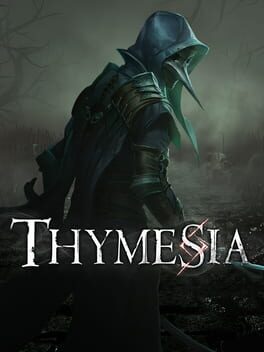
Đang cập nhật mô tả.
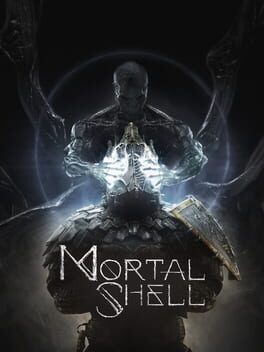
Đang cập nhật mô tả.
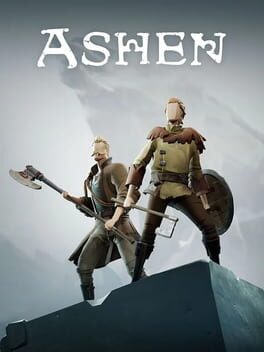
Đang cập nhật mô tả.
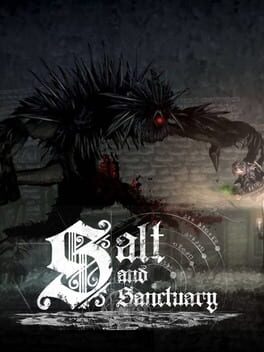
Đang cập nhật mô tả.
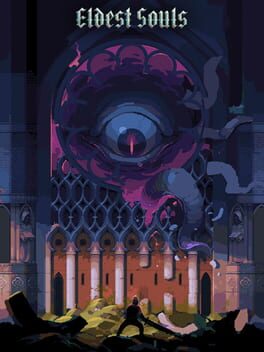
Đang cập nhật mô tả.
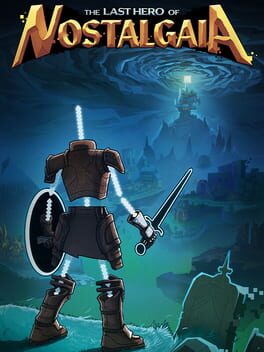
Đang cập nhật mô tả.
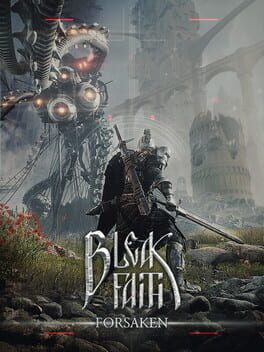
Đang cập nhật mô tả.